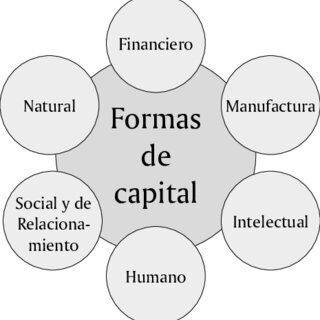In the world of business finance and accounting, attachment to standard guidelines and regulations is critical to ensure clarity, accuracy, and reliability in financial reporting. “Normas de Información Financiera,” often abbreviated as NIF, is a set of accounting standards used in Mexico. In this article, we will explore the features of Normas de Información Financiera, its consequences, and its effects on financial reporting in the country.
Table of Content
- Introduction
- Historical Background of Normas de Información Financiera
- The Purpose and Objectives of NIF
- Key Features of Normas de Información Financiera
- Adoption of NIF in Mexico
- Benefits of Complying with NIF
- Challenges in Implementing NIF
- NIF vs. IFRS
- The Role of Regulatory Bodies in NIF
- Common Misconceptions about NIF
- NIF in a Global Context
- Future Trends and Developments in NIF
Introduction

In the realm of financial reporting within Mexico, one encounters the intricate sphere known as Normas de Información Financiera, often hailed as the Mexican GAAP (Generally Accepted Accounting Principles). This all-encompassing framework wields its authoritative sway over the landscape of financial disclosures in the nation. Its overarching objective resides in the realm of fostering an environment characterized by unwavering uniformity and meticulous comparability within the confines of financial presentations. This, in turn, renders the task of evaluating the fiscal well-being of an enterprise a far more streamlined endeavor for an assemblage comprising investors, regulatory authorities, and sundry other vested stakeholders.
Historical Background of Normas de Información Financiera
The history of NIF dates back to the early 20th century when Mexico began to develop its accounting principles. Over the years, the framework has evolved, incorporating international best practices while catering to the unique needs of the Mexican business environment.
The Purpose and Objectives of NIF

NIF serves several vital purposes in the world of finance. Its primary objectives include providing relevant and reliable financial information, enhancing the transparency of financial reporting, and facilitating decision-making by investors and creditors.
Key Features of Normas de Información Financiera
- Components of NIF
NIF comprises various components, including financial statements, recognition criteria, measurement bases, and disclosure requirements. These components work in harmony to create a comprehensive accounting framework.
- Principles of Financial Reporting
The principles underlying NIF are built on the foundation of transparency, comparability, relevance, and reliability. These principles guide companies in preparing their financial statements.
Adoption of NIF in Mexico
NIF’s reach is the great equalizer, uniting companies of all sizes and ownership structures under the banner of standardized financial reporting. This universality serves as a resounding testament to NIF’s pivotal role in upholding the twin pillars of financial transparency and accountability that form the bedrock of Mexico’s financial landscape.
Benefits of Complying with NIF
Compliance with NIF offers numerous advantages, such as improved access to capital, increased investor confidence, and a better understanding of financial performance.
Challenges in Implementing NIF
While NIF provides a robust framework for financial reporting, companies often face challenges in its implementation.
NIF vs. IFRS

NIF shares some similarities with the International Financial Reporting Standards (IFRS). Still, it also has key differences tailored to the Mexican business environment. Understanding these distinctions is essential for multinational corporations operating in Mexico.
The Role of Regulatory Bodies in NIF
Regulatory bodies, such as the Mexican Financial Reporting Standards Council (CINIF), play a pivotal role in maintaining and updating NIF. They ensure that the standards remain relevant and aligned with international best practices.
Common Misconceptions about NIF
One common misconception surrounding Normas de Información Financiera (NIF) is the erroneous belief that it exclusively pertains to publicly traded companies. In actuality, NIF holds relevance across a broad spectrum of entities, irrespective of their size, nature, or ownership structure. This accounting framework serves as a fundamental guideline for financial reporting in Mexico, encompassing not only publicly traded corporations but also private enterprises, partnerships, and various other business entities. By dispelling this misconception, it becomes evident that NIF’s principles and standards have a far-reaching impact on the entire landscape of financial reporting in the country, emphasizing transparency and consistency in financial statements for all types of organizations.
NIF in a Global Context
As businesses become increasingly global, understanding how NIF fits into the broader international accounting landscape is essential. We will examine the international implications of NIF compliance.
Future Trends and Developments in NIF
The world of finance is constantly evolving. We will discuss the potential future developments and adaptations of NIF to keep pace with changing business dynamics.
Conclusion
Normas de Información Financiera (NIF) stands as the cornerstone of Mexico’s financial reporting arena, wielding a profound influence that ripples through businesses, investors, and regulatory bodies alike. With its steadfast commitment to the principles of transparency, comparability, relevance, and unwavering reliability, NIF forms the bedrock upon which trust and confidence in the Mexican financial ecosystem are built. Embracing NIF isn’t merely a legal obligation; it is a strategic imperative that bolsters the very foundation of Mexico’s financial system, ensuring a robust and trustworthy framework for all stakeholders involved.
Read more: Navigating the World of Normas de Información Financiera Unlocking Financial Clarity
